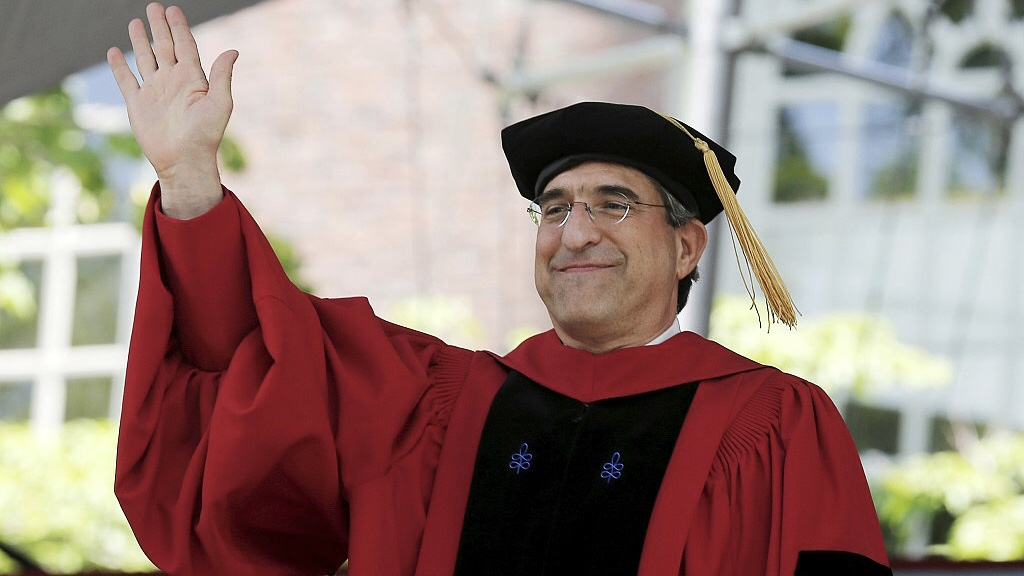
TV Show
23:08, 28-May-2019
Yale president: Education exchange is great convener
World Insight with Tian Wei
02:24

In an open letter to Yale's 5,500 international students on May 23, university president Peter Salovey said he had been working with the heads of the 62-member Association of American Universities in the U.S. and Canada to clarify "concerns they have about international academic exchanges."
While Yale University has a storied history with China dating back to the 19th century, China-U.S. cooperation in higher education has flourished in recent decades.
In recent weeks, tensions between the United States and China have increased scrutiny in academic exchanges. A growing sense of unease lingers among many international students and scholars across the United States.
Salovey has sought to reassure all overseas students at the school, offering a "steadfast commitment" in the face of geopolitical friction. CGTN correspondent Tian Wei spoke to Salovey about how to maintain educational cooperation in a changing world.
Salovey said as a university leader, his job is to encourage partnership and multilateral thinking, although there is no doubt that "we are living in challenging times."
Universities are a great convener and places where people can share ideas and learn to work together across the boundaries. He still believes in that because people need to look forward in the long run.
"When the U.S. and China or any other relationships are strained, and then over time we work through them, we work cooperatively and collaboratively," he said.
Salovey thinks that universities play a crucial role in preventing geopolitical isolation, even in the time of Cold War, Russian and the U.S. scientists were working together on certain topics. He expressed hope that people can recognize that China's best friend are Americans who have studied in China, while Americans' best friend in China are Chinese students who have studied in the United States.
The human mind is a terrible thing to waste. The Yale University president knows this better than most – being an early pioneer in emotional intelligence. He explained that while technology could get in the way of mental health and human relationships, it can also break down barriers in thinking between the East and the West.
Besides, the East and West have a very different way to look at things. For example, people in the East tend to focus on history and relationships among different factors, but in the West people tend to directly find the exact answers to certain questions.
As an educator, Salovey thinks this can be mobilized for the best use. He gave an example about a research at the University of Michigan, which shows people from China are more likely to think about context as well the environment surrounding something, while Westerners are more likely to focalize.
"The classic experiment is to look at a tank of fish, and ask people what they see. Some people from China are more likely to see the scene of what's under the sea. Americans are more likely to see fishes."
(If you want to contribute and have specific expertise, please contact us at opinions@cgtn.com.)

SITEMAP
Copyright © 2018 CGTN. Beijing ICP prepared NO.16065310-3
Copyright © 2018 CGTN. Beijing ICP prepared NO.16065310-3